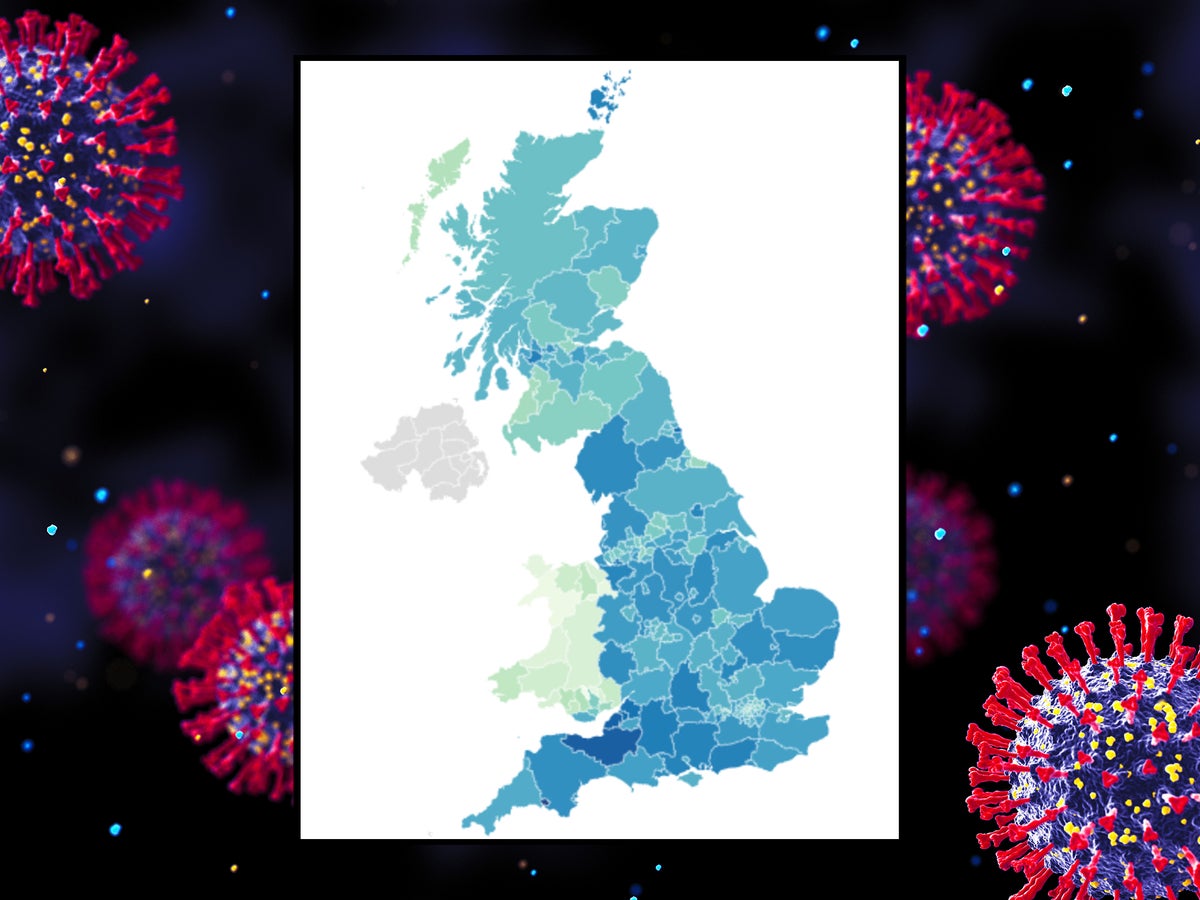
Three years have passed since the beginning of the Covid-19 pandemic and the virus remains present in the UK.
Authorities have not yet declared Covid-19 endemic – which would mean it is officially recognised as having a constant presence in the country – but cases continue to be recorded week after week.
Case rates are nowhere near as high as in times when social restrictions were put in place to slow the spread of the virus but they are rising in some areas.
NHS leaders have warned of a difficult winter for the health service as hospitals have to contend with flu, Covid-19 and higher-than-average cases of Strep A-related illnesses.
Professor Sir Stephen Powis, the national medical director for NHS England, said: “The focus at the moment is on recovering from the pandemic, so we still have Covid patients in hospital, Covid is just starting to go back up again as we get towards Christmas and into winter, and we’ve got the backlog of cases that has arisen out of the pandemic to deal with too.
“So it’s still an incredibly tough time in the NHS and I’m really conscious my colleagues have worked flat out for three years and they’re continuing to work flat out.”
He added: “All our NHS staff are continuing to work hard to ensure we continue to manage Covid and flu and other infections as they come back but also make sure everybody gets treated as quickly as possible as we recover and manage the backlog.”
The UK Health Security Agency (UKHSA) records Covid-19 cases across Britain. The latest figures show the hospital admission rate for Covid-19 patients was up to 5.45 per 100,000 in the week to 1 December, from 4.51 the week before.
Hospitalisation rates for the virus were highest in northeast England, with a rate of 7.56 per 100,000.
UKHSA data is broken down to a local level and shows a variety of rising and falling rates across Britain.
The lowest case rate was in Merthyr Tydfil, north of Cardiff, at 1.7 per 100,000. This was down from 13.2 in June.
Plymouth had the highest case rate at 76.5, though this was down by nearly half from the 149.1 recorded in June.
The NHS is offering booster vaccinations to millions of people, though large numbers of eligible recipients have yet to come forward.
Dr Jamie Lopez Bernal, a consultant epidemiologist for immunisation and countermeasures at UKHSA, said: “During the winter, we would expect to see a rise in Covid-19 activity and other winter viruses as people are mixing more indoors again.
“Covid-19 hospitalisations are highest in the oldest age groups, so it is particularly important that everyone who is eligible continues to come forward to accept their booster jab.
“While Covid-19 and flu can be mild infections for many, we must not forget that they can cause severe illness or even death for those most vulnerable in our communities.
“If you are unwell this winter, please try to stay at home and avoid contact with vulnerable people – this will help stop infection from spreading.”







